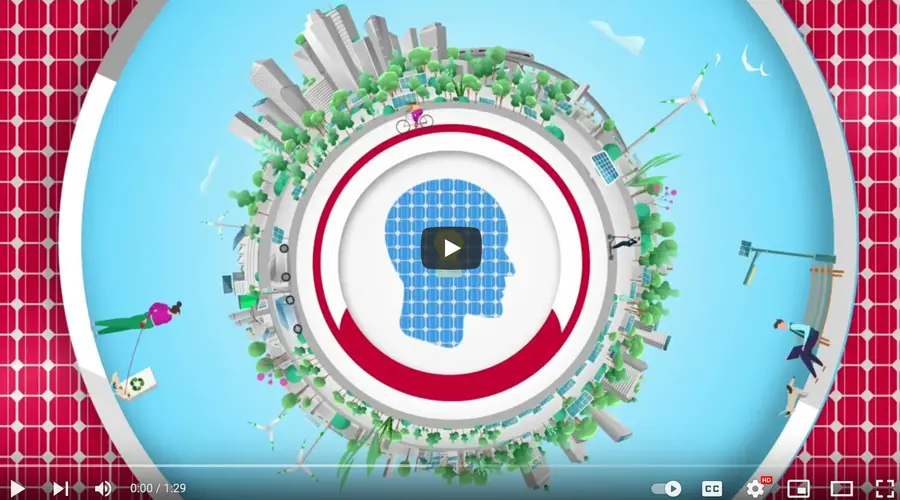
The Future of Business Education is Stackable
Higher education of the future may not be measured in semesters, and robust academic programs will not be limited to two- or four-year packages. In the future, students won’t travel to designated buildings to learn, and specialty degrees are not likely to be the most acceptable credential to prove knowledge.
Distinct and powerful forces, including economics and technology, are driving revolutionary changes in higher education and how it will be delivered in the years to come.
At Rutgers Business School, innovative new programs that draw on the transformative idea of stackable credentials are being developed with an eye to the forces shaping the future of higher education. The programs are designed to instruct students in non-traditional course formats and to up skill working professionals who are intent on keeping pace with the rapidly changing work world even if they don’t attain a full master’s degree to do it.
Rutgers Business School Dean Lei Lei and Miklos Vasarhelyi, distinguished professor of accounting information systems, have passionately advocated the introduction of novel micro courses and stackable certificate programs as key to future business education teaching – and learning.
“We are leading the way into the future with new curriculum options that answer the demands of students who want to learn with greater flexibility,” said Dean Lei. “Our new programs are designed to allow students to study the topics they choose, linking together classes to build job skills needed for future work in a digital era.”
Rutgers Business School’s most ambitious effort to create a stackable curriculum that shakes up the traditional program structure is the Rutgers Stackable Business Innovation Program or rSBI.
Graduate students may take courses from a broad range of subject areas, including such contemporary business topics as data analytics and machine learning and more traditional subjects such as real estate.
Students have the flexibility of choosing courses they want and earning credits as they go, advancing through the courses at their own pace. The program also offers students the option to “stack” credits together and apply them toward non-degree certificates providing them with in-depth subject matter expertise.
Jorge Angulo enrolled in the stackable program so he could tailor his learning to the topics that were most relevant to his work. “I’m not pursuing a degree, but I’m getting the knowledge that will help me accomplish my professional goals,” Angulo said. “The duality is appealing, knowing that at some point in the future, I may accomplish enough credits to formalize a degree.”

Distinguished professor Benjamin Melamed, who is director of the Rutgers Stackable Business Innovation Program, said stackable programs reflect the evolution of higher education by providing students with more flexibility to gain knowledge as they progress in their careers.
“Stackable programs fulfill the educational mission of “Lifelong Learning for Lifelong Employability” geared toward students who want to up skill so to stay technically current and relevant in their professions without having to commit the time and money required for a degree program,” he said.
The new programs at Rutgers Business School reflect trends that have been emerging for years in higher education. The efforts to innovate began before COVID-19 emerged and crystalized as the delivery of education shifted dramatically during the pandemic.
“Predicting the future is easy,” said Vasarhelyi, who is credited with being the visionary force behind some of the new curriculum. “What’s more difficult is predicting the timing,” he said. “The pandemic accelerated some of the change.”
Vasarheyli worked with several of his colleagues, including Professor Hussein Issa, on an idea that involved stacking different courses together to form modules. The professors originally wanted to name the program after the beloved colorful LEGO building blocks to convey the idea of how classes could be assembled. Eventually, the professors settled on BYOC or Build Your Own Course.
The idea, Issa explained, is to permit students to customize their education by choosing the topics they have an interest in learning more about without requiring them to take a full 14-week course. “A lot of students have heard about blockchain, and they want to learn how it works,” he said. “Think of BYOC as an appetizer. They can take a taste and if they want more, they can take a whole course.”
In a pilot for undergraduates last year, Rutgers tested the concept, allowing students to stack a variety of week-long modules into a one-credit online course. Much of the content came from the accounting and continuous auditing area, but included such topics as blockchain, cryptocurrencies and visualization.
As an example, students may take a BYOC course in “Blockchain, Crypto and Cybersecurity,” selecting four modules of their choice, including such topics as Introduction to Crypto Currencies, Basics of Cybersecurity, Crypto Currency Markets and Ecosystem, Fair Value Measure of Crypto Currency and Information Risk Management. BYOC allows students to assemble the course they want around a single required module in this case: Introduction to Blockchain and Smart Contracts.
“It was an experiment,” Issa said of the BYOC pilot which was launched during the COVID pandemic. “We wanted to see how it would go.”
The new BYOC format attracted nearly 200 students who registered for a total of 190 courses. “Students from across the business school were interested in these,” said Issa, who oversaw the pilot and counseled students on what bite-sized courses might best augment their majors. This fall, 150 students signed up for BYOC courses.
A graduate-level version named Short Courses in Business Innovation is planned for spring 2022, which will offer Build Your Own Courses in the same asynchronous, online, bite-sized, one-credit concept.
Each of the new programs are powered by a digital library that has offered students around the world nearly 4,000 hours of educational material for more than a decade. Rutgers professors working with Vasarhelyi were doing research projects with CPA firms, state governments and other schools, the digital library became a way of providing students with resources that reinforced and expanded their own classwork.
“Our group was developing all of this knowledge and our students were not getting it,” Vasarhelyi said. “We wanted to make a serious effort to incorporate it in our educational process.”
The digital library was pioneering for its time and its popularity fueled the idea of delivering knowledge in the stackable, customized style of Build Your Own Course. Vasarhelyi envisions that such tailoring of programs will continue as higher education continues to be disrupted by nimble competitors, economics, and the digital world.
“Education is going through a paradigmatic change analogous to the invention of the Gutenberg press,” he said. “Pre-set programs will give way to modular-based variable content educational packages with expert software guiding students and detecting student difficulties.”
- Susan Todd
Graphic Illustration: Getty Images
Press: For all media inquiries see our Media Kit

